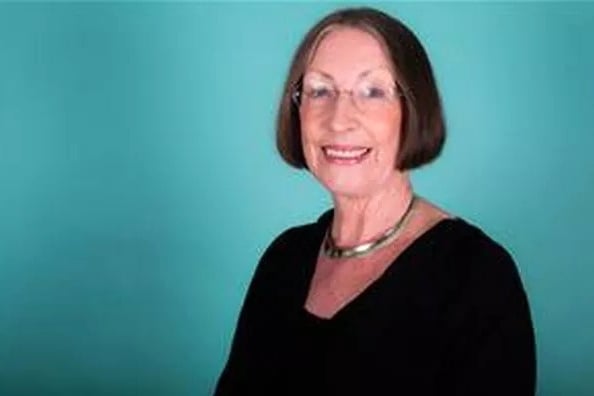A CORNWALL councillor told a packed chamber that a child’s bed in a council house in her area was “horrific” – riddled with damp, fungus and mould. She spoke out about poor conditions of council-owned properties in the town she represents as the local authority agreed to increase rent by 7.7 per cent.
Pat Rogerson, Liberal Democrat councillor for Bodmin St Mary’s and St Leonard, asked if the extra money raised by a 100 per cent council tax premium on second homes in the Duchy – a double council tax payment planned to start next year – would be spent on improving the local authority’s housing stock.
The council’s Conservative portfolio holder for housing said he hoped the extra revenue, which could be as much as £20-million, would all be ploughed back into housing.
The council has agreed to a housing business plan which would see capital investment of £656-million over 30 years with £200-million investment over eight years to ensure its homes meet the Government’s Decent Homes standard – £83-million of revenue investment will be spent over the next eight years on repairs and maintenance with a priority to deal with damp and mould, while £204-million will be spent on building or acquiring new homes.
Cornwall Council owns around 10,300 homes, 30 per cent of which do not meet the current decent homes standard. The 7.7 per cent rise in rent will help pay for improvement work to be carried out.
Cllr Rogerson told colleagues at a full meeting of the council on Tuesday: “Yesterday I received an email and photograph of a child’s bed that was about to be thrown out, riddled with damp, fungus and white dusty mould. It was horrific. Sadly, that’s not unusual for me any longer. My division is almost wholly social housing and they’re virtually all owned by Cornwall Housing Ltd [CHL -the housing arm of Cornwall Council].
“The condition of these houses is poor. CHL’s financial ability to enhance and repair these homes is poor. Many of my residents are desperately poor. Where is the government money to deal with this? Millions have been proposed – a lot of it is coming out of increasing the tenants’ rent.”
She added: “That child that I mentioned is sleeping with her nine-year-old brother and a one-year-old baby in one room. What if they’re in year eight of this phase of these millions – that’s another seven years that this family are going to be living in those conditions. Meanwhile, in this Duchy, there are people with two homes and lots of bedrooms, and clean, fresh laundered sheets.”
The councillor asked portfolio holder for housing Cllr Olly Monk: “Will you finally agree that at least in next year’s budget, the £20-million that we can raise from second homes will be committed to dealing with this pernicious issue of damp and mould?”
Her speech was greeted with claps from councillors within the chamber.
Cllr Monk responded: “It is always horrible when you hear individual stories. I have to live and breathe them as well as most of our members do. The stories are heartbreaking about people and the conditions they have to live in. I think this highlights the need for the investment that we are making to improve the conditions of those properties as a priority.
“I welcome your question about whether we will spend 100 per cent of the money that we will raise from council tax [on second homes]. We still don’t know when that will exactly come through and we still don’t know how much that money will amount to. It is my preferred option that we spend every single bit of that money on housing across the board. However, that decision will probably have to be made by the next administration.”
He added: “As far as I’m concerned, it’s our number one priority as housing. It’s my view personally, and it may not be reflective of the Cabinet as a whole, it should be spent 100 per cent on housing, which would include repairs and buying new property, and trying to alleviate the housing crisis. I just wish it was sooner rather than later.”
There was criticism from some quarters about the rise in rents.
Cllr Julian German said that Cornish tenants are unable to support the 7.7 per cent increase. “Last year was the first year in the history of Cornwall Council that tenants said they were unable to support the increase.” Cllr Tim Dwelly asked why it was set so high for next year when tenants said they could not afford it this year. “They don’t think the repairs and performance justifies it,” he added.
Cllr John Conway pointed out that it was a 7.7 per cent increase on a very low starting point. “Rents in Cornwall are nothing like they are in much of the rest of the country. So 7.7 per cent of not a lot is a lot less than the rest of the country.” He called for a more realistic economic social rent to be put on new housing stock.
Cllr Monk responded that without that rent increase, the council would not be able to afford to make the investments it promises.
“Seventy five per cent of our tenants receive housing benefit and that will cover that 7.7 per cent rent increase. To fund the repairs that we need and see the investment in the stock, that needs to be paid for by the rents that come from the social housing, but it is a fine balance between raising it to a point where it really disadvantages people and then raising it enough to make a difference with the investment programme we’ve got.”





Comments
This article has no comments yet. Be the first to leave a comment.